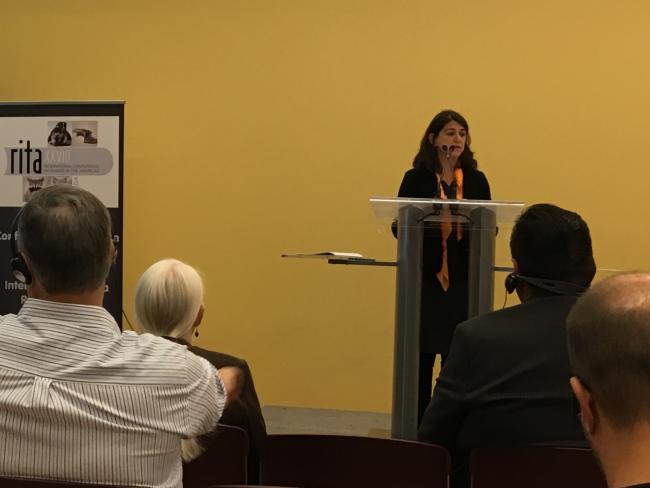Editorial: Uniting global strategies and regional activities to support rabies control
On this year’s World Rabies Day (WRD), a major new initiative was founded by the FAO, OIE, WHO and GARC – the United Against Rabies collaboration – the biggest anti-rabies initiative yet, which melds a global business strategy for rabies elimination into an ambitious plan to end human rabies deaths by 2030. This initiative will take international rabies control efforts to the next level as we move forward to help all countries build the capacity to reach elimination of human rabies deaths. Designed to help make rabies elimination a priority for rabies endemic countries, the plan provides a much-needed roadmap for ensuring all countries can meet the 2030 goal. It will support rabies-endemic countries as they develop national plans and provide the training and education resources that must be in place to reach these elimination goals. GARC is proud to be part of the United Against Rabies collaboration, and we view this partnership with other
global health leaders as crucial in the fight against rabies.
In addition, an expert review of the effectiveness of pre and post exposure prophylaxis was recently approved by the Strategic Advisory Group of Experts (SAGE) committee at WHO and will be incorporated into the upcoming revised WHO expert report. Amongst other recommendations is the adoption of a new 3 visit intradermal regimen for rabies post-exposure prophylaxis that will allow for a shorter and more cost-effective schedule of vaccinations. As part of efforts at the international efforts we anticipate that these new international guidelines will be helpful improvements and make it easier to provide treatment and prevent even more deaths in resource-challenged environments where essential, life-saving vaccines may be in short supply.
These collaborative efforts by global health leaders and the new international guidance for rabies prevention will have little impact without the efforts of those boots-on-the-ground, everyday people who are leading local and regional rabies control efforts. Reflecting on the WRD events of September is always a humbling experience as we consider just how many people are working for improvements to rabies control efforts across the world. The many varied events held around the world to build rabies awareness often do not garner international press-releases or sustained media attention, but these local events are the crux of effective rabies control efforts. To bring rabies awareness to the far-flung corners of the world, messages must be adapted to fit the culture and people of the area; it has been truly inspiring to see the innovation and resourcefulness used by community health workers and leaders to produce such inventive WRD events this year.
We also celebrate some outstanding contributors to rabies control efforts making a difference in their communities. GARC is honoured to present its annual WRD/MSD awards, and our winners were announced in early November. Our diverse set of awardees hail from many different regions and types of organizations–from animal protection groups to individual community health workers–and we hope that these awards will continue to encourage others to support this vital community work. In addition, we are especially happy to report that the government of the Philippines honoured our partners in Ilocos Norte with an award recognizing excellence in their rabies control program implementation.
So, it is with renewed enthusiasm that we look forward to the opportunities that 2018 will bring. As a community committed to rabies prevention, we need to deepen our resolve, strengthen our links with like-minded organisations, and continue to push our advocacy efforts to make sure policy makers understand the importance and value of rabies prevention. As GARC’s CEO Prof. Louis Nel said in relation to the United Against Rabies collaboration, “There is no reason for anyone to die of rabies in today’s world, and rabies endemic countries have made its elimination a priority. With strong and sustained commitment from the human and animal health sectors, we can and will end this deadly disease”
Contributed by Laura Baker and Louise Taylor, newsletter co-editors, GARC
